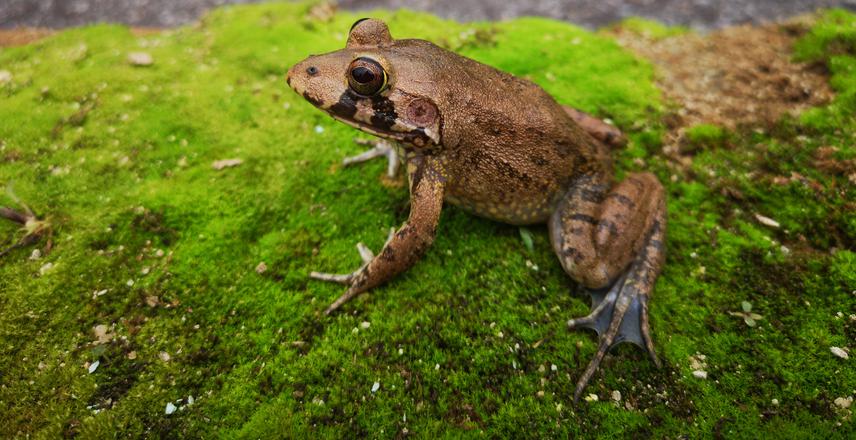Lotanna Micah Nneji
Other projects
17 Jul 2017
Biodiversity Assessment and Conservation of Amphibians and Reptiles of Gashaka Gumti National Park, Nigeria
23 Jan 2020
Ecological Studies and Community-Based Conservation Activities for Amphibians and Reptiles of Gashaka Gumti National Park, Nigeria
17 May 2024
Saving the Last Remaining Populations of the Highly Threatened Nigerian Montane Herpetofauna Through Conservation Education and Community Awareness Programmes
Our previous RSG projects (22507-1 and 29951-2) on Nigerian amphibians and reptiles (herpetofauna) showed that the herpetofauna endemism and richness were highest in the mountains. This outstanding endemism and richness were incomparable to any other terrestrial ecosystem in Nigeria. Thus, it is not gainsaying that montane ecosystems are a cradle of herpetofauna biodiversity in Nigeria, and its sustenance is critical for the long-term persistence of regional herpetofauna. Despite this, there is still limited knowledge of the diversity, distribution patterns, ecology and conservation status of Nigerian montane herpetofauna. In this project, we will provide comprehensive data on the elevational distribution patterns of herpetofauna in the three most biodiverse montane areas in Nigeria - Mambilla Plateau (Taraba State), Obudu Plateau (Cross River State) and Idanre Hill (Ondo State).

West African brown frog. © Lotanna Micah Nneji.
Using social science survey and ecological field sampling (involving traditional visual and acoustic methods, and environmental DNA metabarcoding approach), we will document the herpetofauna diversity and distribution patterns across elevations in our focal areas of study. Also, we will document different threats (e.g., disease(s), climate change, habitat degradation and a host of other threats) to Nigerian montane herpetofauna. The current project will improve knowledge of the diversity, distribution, ecology and threats to Nigerian montane herpetofauna, as well as identify key areas of conservation priorities. Given that early action would be more effective and less costly than inaction or delayed action, we will engage in habitat restoration programmes to help restore degraded montane ecosystems. Finally, we will intensify conservation outreach programmes through widespread conservation education in schools and communities in focal communities to raise awareness for conserving the herpetofauna and its associated habitats.
Header: Herpetofauna field survey in Nigeria. ©Kelechi Ilobi.